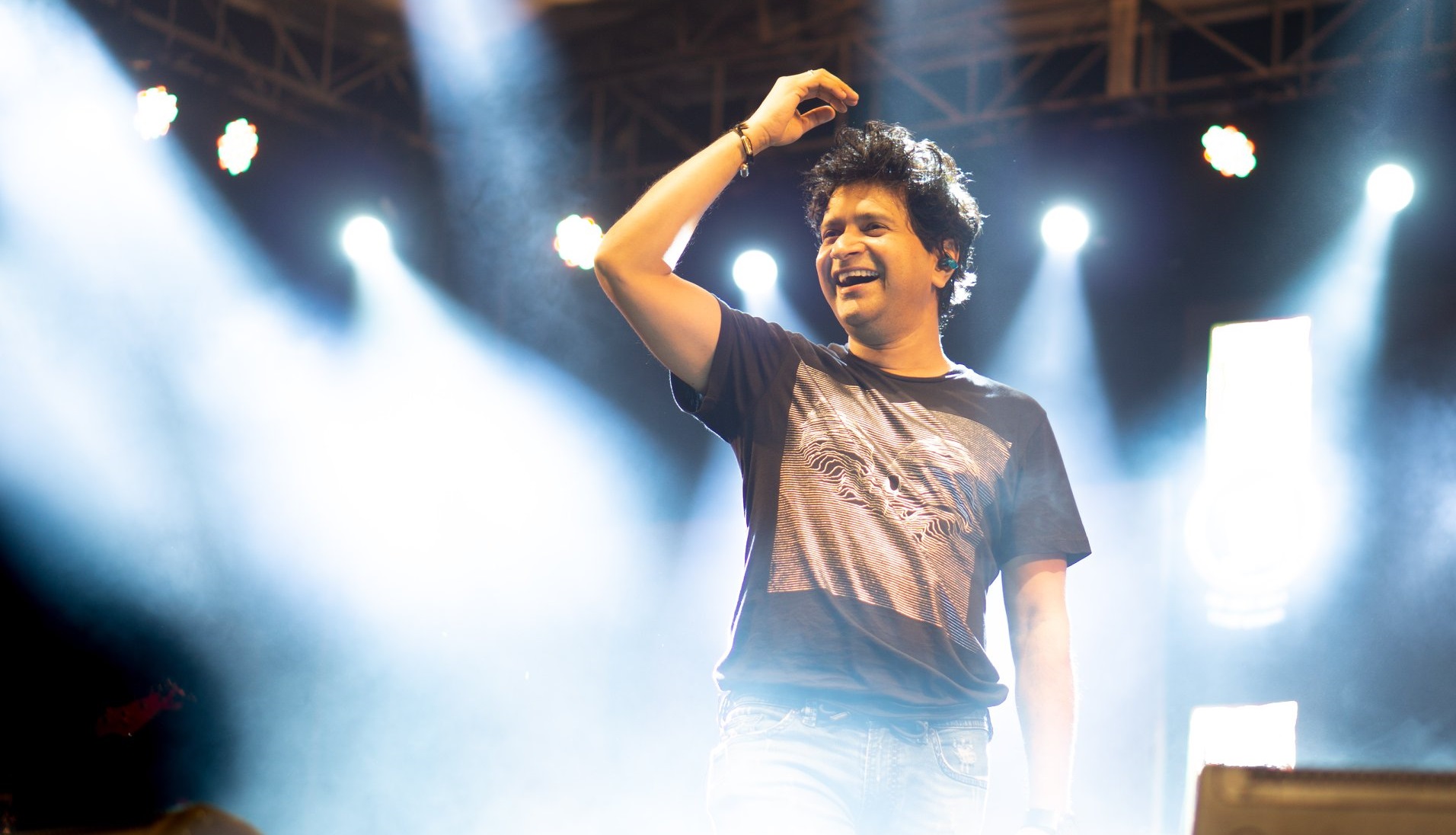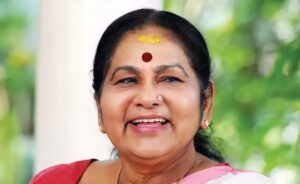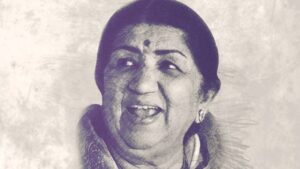
Celebrated vocalist KK passed away in Kolkata at the age of 53. It is an event that sent shockwaves across India for he happens to be one of the nation’s most unanimously loved singers. Aside from his recognized vocal skills, KK’s persona brimmed with positivity, and he was active on social media – making it hard for a generation (and their parents) to fathom this loss.
The last thing I wished to write for KK on this date was an obituary. A few years back, I celebrated his 50th birthday at my previous workplace. I procrastinated my plans to compile a bunch of KK songs that made a difference in my life. “Why now? What’s the occasion? The milestone birthday has passed,” I thought to myself whereas a long list of his songs stay put in my daily playlist.
KK did that to millennials and Gen-Z. He emerged when cable television was on an all-time high. Soon he managed to tantalize the music-loving Y2K generation of India that was slowly discovering dial-up internet besides spending pocket money on audio CDs. Now, as I look back, KK possessed a distinctive appeal as compared to his peers. The factor is that I seldom imagined KK’s songs with actors lip-syncing to them. The singer had an unusual ability to play with my imagination.
I do not remember how my top favourite KK number ‘Zindagi Do Pal Ki’ from Kites has been shot. Yet it happens to be among the rare songs that leave an unusual ache. Especially as he croons, “Intezaar kab tak hum karenge bhala,” I know it was less about the magic in the lyrics or Rajesh Roshan’s tune. When KK renders, “Ik chhotasa vaada, is umr se zyada sachcha hai sanam…”, he gives the composition definition and character with a voice so original, innate, and soul-stirring.
Speaking of that, I am yet to watch the 1997 film Minsara Kanavu (Sapnay) which swept the music trophies at the National Film Awards. That said, I forever identify ‘Strawberry Kanne’ or ‘Strawberry Aanken’ as one among A R Rahman’s quirkiest numbers. Too bad the composer didn’t utilize KK enough in their respective long and fruitful careers. At the cost of sounding irreverent, I am tempted to pick songs that KK would have bettered from what it already is.
While I am a self-confessed Anu Malik fanboy, I fully understand how personal KK made Saaya’s (2003) ‘Kabhi Khushboo’ sound. Melancholy is the genre, but the song is way beyond a depressing lament. It is meditative. Likewise, the silver lining of the godawful Main Prem Ki Diwani Hoon (2003) was its songs – sung by KK, KS Chithra, and Shaan. If the singer put in a thunderous show in ‘Chali Aayee’ and ‘Sanjana I Love You’, the naughty ‘Ladka Yeh Kehta Hai’ beamed with an attitude that the film lacked.
While it would be pretty conventional of me to mention ‘Yaaron’ and ‘Pal’ from his studio album Pal (1999), let me tell you I have never seen how they were picturized – yet are extremely close to my heart, as they are to multitudes of Hindi music lovers. I am guilty to have discovered the latter very late via the talent reality show Indian Idol.
I have a similar experience with Sanjay Leela Bhansali’s Hum Dil De Chuke Sanam (1999) which I watched very late in life. What I vividly remember is rewinding the audio cassette of the Ismail Darbar album persistently to relish KK’s full-throated ‘Tadap Tadap Ke Is Dil’. The man had a voice that I hadn’t heard in Bollywood thus far. Ditto for Anu Malik’s ‘Banda Yeh Bindas Hai’ from AKS – a sizzling number that appeared in a film that felt too dark for me to give a try back then.
To my own surprise, Rehnaa Hai Terre Dil Mein happens to be the only Bollywood romantic comedy from the 2000s that I gave a miss. However, the imagery that KK’s god-like voice provides is more than enough for me to cherish my beloved song from the album ‘Sach Keh Raha Hai’.
It was around the same time that KK astounded me in Anu Malik’s unusually high-pitched ‘Teri Zindagi Mein’ from Badhaai Ho Badhaai. The composer, to our delight, did not take the falsetto route with KK as he did with Sonu Nigam in Aaghaz’s ‘Dosti Ho Gayee Hain’. The singer-composer duo did wonders in another intricately woven song ‘Naya Naya’ from Filhaal’in the same year (2002). Later in 2008, we saw the singer cast a similar spell in Bachna Ae Haseeno’s silken ‘Khuda Jaane’ for Vishal-Shekhar – a glowing addition to Yash Raj Films’ (YRF) legacy of love songs.
2002 was also the year when Jeet-Pritam (now independent composers: Jeet Ganguly and Pritam Chakraborty) delivered a Jatin-Lalit-tinged soundtrack for YRF’s Mere Yaar Ki Shaadi Hai. I remember grooving to KK’s duet with Sunidhi Chauhan (‘Hum Dono Jaisa’) fully identifying with the upbeat tune and the fresh vocals.
Among the rare KK songs where I do have an active visual memory would be Kal Ho Naa Ho‘s (2003) ‘It’s The Time To Disco’ by Shankar-Ehsaan-Loy. Another is Vishal-Shekhar’s grunge-themed club number ‘Ab To Forever’ that he sang with Shreya Ghoshal in the 2007 film Ta Ra Rum Pum. Zingy from the word go, both are club favourites in India to date. Talking of visuals, KK’s voice was also the saving grace of Anu Malik’s chartbusting ‘Ding Dong’ from Kucch To Hai which saw Tusshar Kapoor and Anita Hassanandani in bizarre cowboy getups. Now, as these are all dance numbers that stood the test of time, how can one forget Vishal-Shekhar’s ‘Dus Bahaane’ (by KK and Shaan) from Dus (2005)? Speaking of well-choreographed songs, Farah Khan and Anu Malik gave us the smashing ‘Chale Jaise Hawaayein’ in KK and Vasundhara Das’s sexy voices.
Again, going back to songs from films I am yet to watch, ‘Main Khuda’ from Anurag Kashyap’s unreleased debut Paanch was a knockout solo by KK. Composer Viveck Philip’s ‘Le Chale’ from Onir’s My Brother Nikhil (2005), too, fits the same bill with KK’s affecting rendition landing straight in the heart. Another unforgettable song – with a humming bit to die for – is from what I would call the SONGS PK era when the craze for audio CDs was replaced by downloads from Pakistani websites. It is ‘Nazrein Karam’ by composer duo Shaarib-Toshi from a listless Adhyayan Suman film named Jashn.
By the mid-2000s, KK emerged as a unique brand. Although he did not need a star’s face to sell his songs, he shared several romantic hits with actor Emraan Hashmi. I would vote for ‘Dil Ibaadat’ (Tum Mile) over their long list of popular melodies – which includes the 2006 film Gangster’s ‘Tu Hi Meri Shab Hai’ which was heard in every nook and corner of the nation for a long time.
KK could also be peppy and cute – the emerging brand of onscreen heroes in his peak years. Sample? The title track of ‘Neal N’ Nikki’ and the mushy ‘Ik Teekhi Teekhi Si Ladki’ from Laaga Chunari Mein Daag. The singer upped the cutesy romance bar further with the charming title track of Mera Pehla Pehla Pyaar (MP3) – a mini anthem for Bollywood-loving teens back in the day (2007). In 2002, Composer Sandesh Shandilya gifted KK with a syrupy ‘Uljhano Ko De Diya’ (Rules: Pyaar Ka Superhit Formula) which he belted to perfection with Sanjeevani Bhelande. In the same year, the composer used the singer in a song with its roots in mythology – ‘Dole Re’ from Agni Varsha alongside K S Chithra.
Intensity remained KK’s forte even though several of his easy and hummable songs like ‘Tu Aashiqui Hai’ (Jhankaar Beats by Vishal-Shekhar) have their own flavour. If we take Anu Malik’s ‘Meelon Ka Jaise Tha Faasla’ (Love Story 2050) or Rajesh Roshan’s ‘Dil Kyun Yeh Mera’ (Kites) – both magnificent love ballads – you would easily buy my claim. “Alvida” from Life… In a Metro and ‘Ek Pal Ke Liye’ from Ankahee were wholesome prototypes of the said sub-genre composed by Pritam.
KK was also a force to reckon with in the Tamil, Telugu, and Kannada music industries. On the top of my playlist is the Bharadwaj-composed ‘Oru Vaartha Kekka’ from Ayyaa and Harris Jayaraj’s ‘Uyirin Uyire’ from Kaakha Kaakha.
Post-2010, the Hindi music industry sparingly used KK’s voice which remained dew fresh until his last living day. Composer Arko Pravo Mukherjee’s ‘Abhi Abhi Tum Mile Ho’ from Jism 2 (2002) is a marvelous specimen of what KK had to offer amid the rising mediocrity. Vishal Bhardwaj, too, voice-cast him for his 2011 film 7 Khoon Maaf wherein he accomplished an unparalleled aural feat with ‘Oh Mama’. Again, these are songs that I do not have visuals in my mind to support. The last time I remember being mesmerized by his voice on the big screen was when Pritam entrusted him with Chhichhore (2019)’s nostalgic ‘Kal Ki Hi Baat Hai’.
Now that the gifted vocalist passed away, leaving legions of fans in sorrow, I am grateful to have had these songs enrich my senses in various stages of my life. As time passes, I would find myself discovering many of KK’s overlooked numbers – especially from the southern film industries.
May the departed soul smile at us from wherever he is. And make that place more melodious than before.

